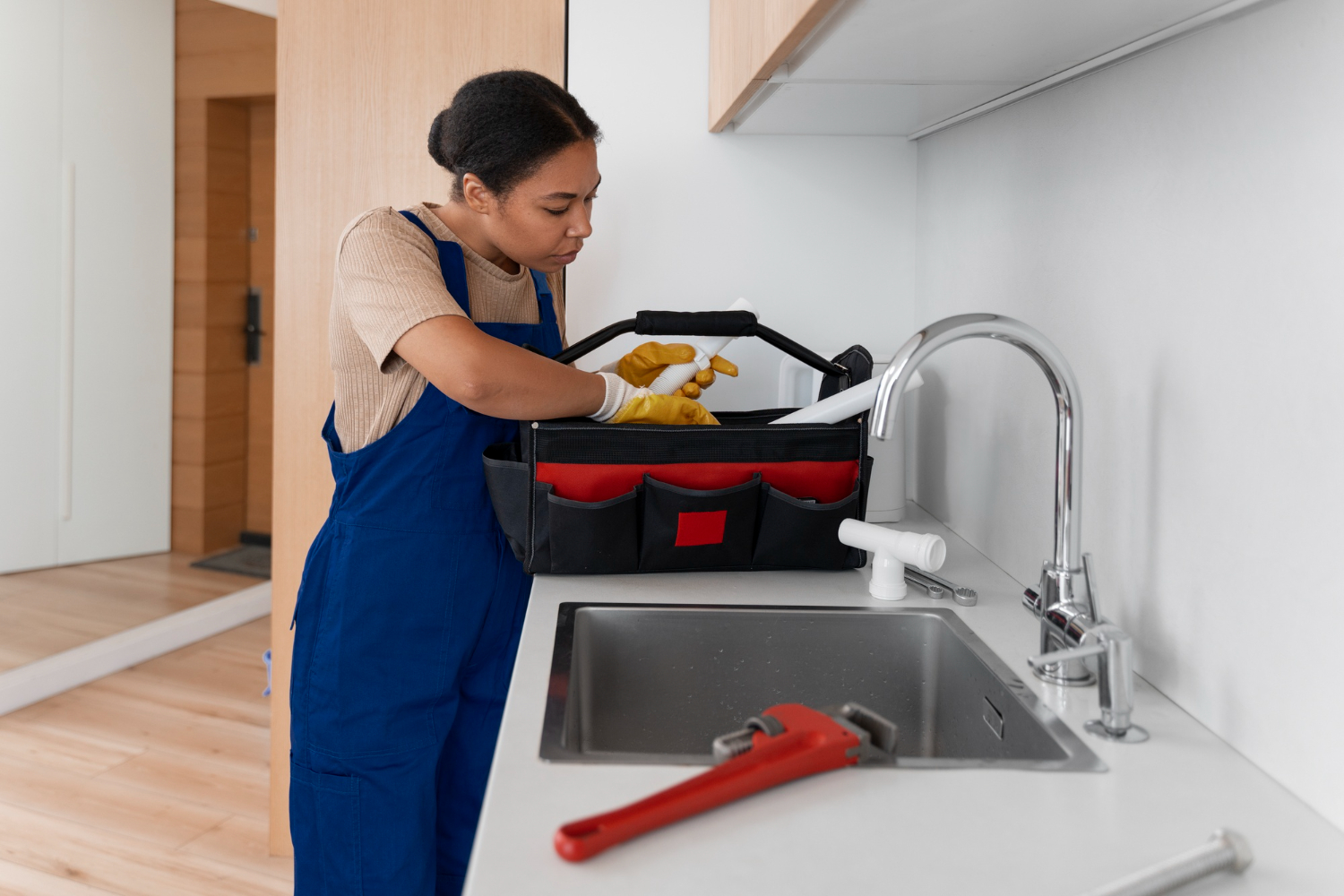
Some home issues whisper before they scream. Your plumbing is no different. It might not be a dramatic flood or a fully clogged sink that tips you off—but a gurgle, a faint smell, or water that just won’t go down like it used to. These quiet signs are easy to ignore, but they’re your early warning system. When drains misbehave, your pipes are usually trying to tell you something.
The temptation is to dismiss these things as quirks—”That sink’s always been slow,” or “It’s probably just soap build-up.” But left alone, small issues can snowball into costly repairs or full-blown plumbing emergencies. So how do you know when it’s time to call in the pros?
Here’s what to watch for.
Table of Contents
Slow Drains That Stay Slow
Almost everyone has dealt with a sluggish drain at some point. You pour in some cleaner, maybe jab at it with a wire hanger, and hope for the best. And sure, sometimes that works—temporarily. But if water continues to pool around your feet during showers or hangs around in the kitchen sink long after the tap’s off, you’re likely facing something deeper.
The real cause could be a stubborn grease buildup, hair compacted into a drain trap, or even tree roots nudging their way into outdoor lines. Either way, quick fixes won’t address the underlying issue. Professional drain cleaning cuts through the gunk, not just the surface problem.
In particular, homeowners in older buildings or commercial premises in high-traffic areas should take note. Slow drainage may indicate broader systemic issues that DIY products can’t solve. That’s when expert help for foul odours and slow drains becomes more than just a convenience—it’s a necessary step toward preserving your plumbing system’s health.
Bad Smells That Won’t Go Away
Most people assume strange bathroom or kitchen smells are down to hygiene—or maybe just last night’s dinner. But if you’ve cleaned everything and that sour, musty, or downright foul scent still lingers, your drains could be the culprit.
What you’re likely smelling is a combination of rotting organic matter, trapped moisture, and possibly sewer gas. It’s not just unpleasant. It’s a warning sign that your drains are failing to clear waste properly.
Bad smells often originate in places you can’t reach—deep in the U-bend, or further down in the main line. Professional cleaning gets to those places safely, without damaging your pipes or pushing the problem further along the system. And if the odour is linked to a bigger issue—like a damaged vent or blocked stack—a trained technician is far more likely to spot and fix it than any store-bought solution.
Frequent Clogs (Even Small Ones)
One clog is annoying. Two might be coincidence. But three or more in a short span? That’s a sign something’s wrong. When clogs happen often—even if they’re minor and easy to clear—it suggests that the inside of your pipes is narrowing, usually due to a build-up of gunk, soap, food particles, or even mineral deposits.
This kind of repeated clogging can happen more often in homes with hard water, or in kitchens where grease routinely finds its way down the sink. In some cases, it might not even be your fault. Older plumbing materials degrade over time and become more prone to snags, cracks, and accumulation.
Professional drain cleaning removes the accumulated material and smooths the internal surface of the pipes, making future clogs far less likely. It’s proactive rather than reactive—a kind of deep clean for your home’s veins.
Gurgling Sounds Or Air Bubbles
That glug-glug sound you hear when draining the bath or flushing the toilet? It’s not your plumbing humming along—it’s actually struggling. Gurgling usually means air is trapped in the system, often because water can’t flow properly. Air bubbles form as the water fights past partial blockages or poor venting.
It’s easy to overlook at first—gurgling isn’t dramatic, after all. But it can signal pressure problems or ventilation issues that may escalate if not corrected. Air in your pipes can also contribute to slower drainage and foul smells, creating a feedback loop that makes things worse.
A plumber with the right tools can diagnose whether it’s a simple blockage or something more structural, like an obstructed air vent or failing sewer line.
Water Backing Up Where It Shouldn’t
This one’s pretty straightforward, and it’s never a good sign. If flushing the toilet causes water to rise in the shower drain, or running the washing machine results in gurgling from the sink, you’re probably dealing with a blockage somewhere in the main line. That means the system has nowhere to send the water—so it’s backing up into the nearest available outlet.
This kind of issue doesn’t resolve on its own. And because it affects multiple fixtures, it points to a problem in your main drainage system, not just one pipe. Waiting too long can lead to flooding, structural damage, or even exposure to harmful bacteria. It’s definitely time to call in professional help.
Final Thoughts
Drain problems rarely begin with dramatic floods or complete failures. Most start quietly—with a slow drain, a strange smell, or a little noise in the pipes. And that’s the best time to act.
Professional drain cleaning isn’t about overreacting to minor inconveniences. It’s about recognising when your system is trying to tell you something. Catch the signals early, and you’re more likely to solve problems with minimal disruption—and far less cost.
Because plumbing, like most things in the home, runs best when you notice the quiet signs and respond before they get loud.


